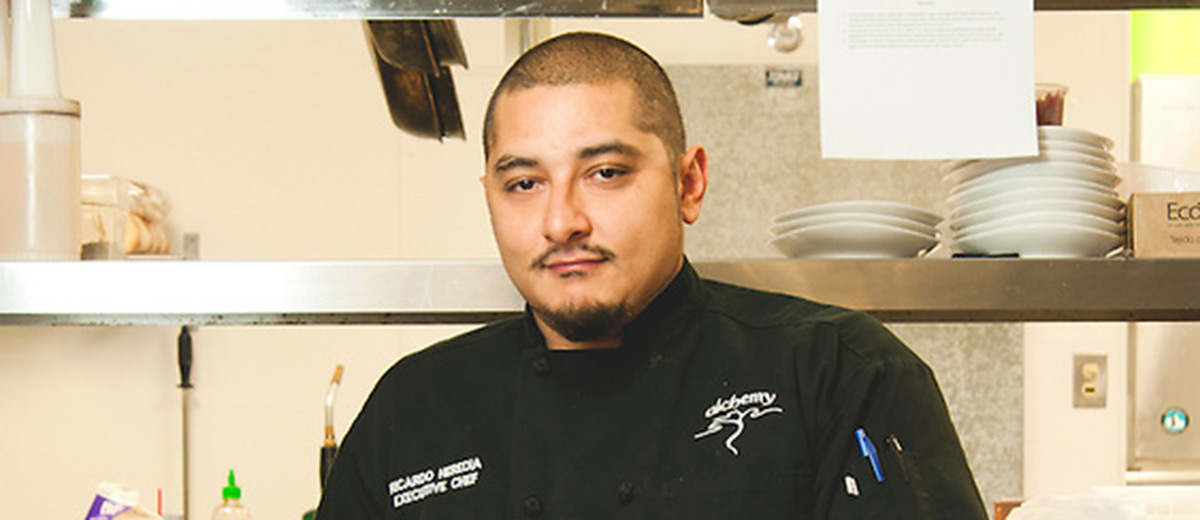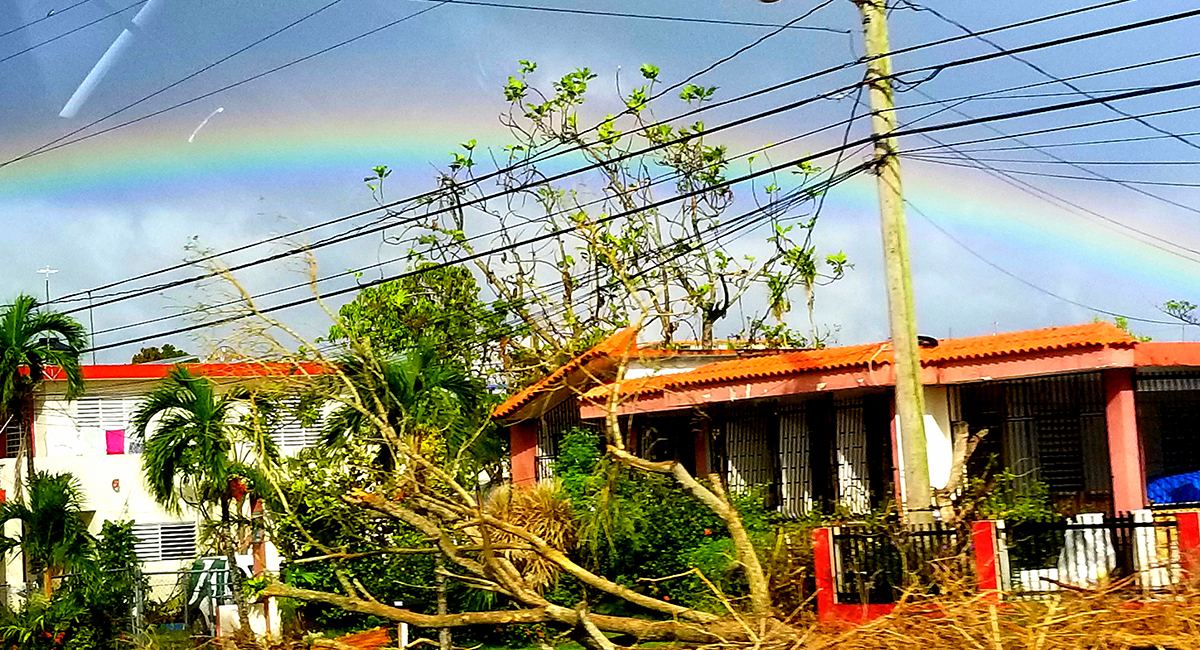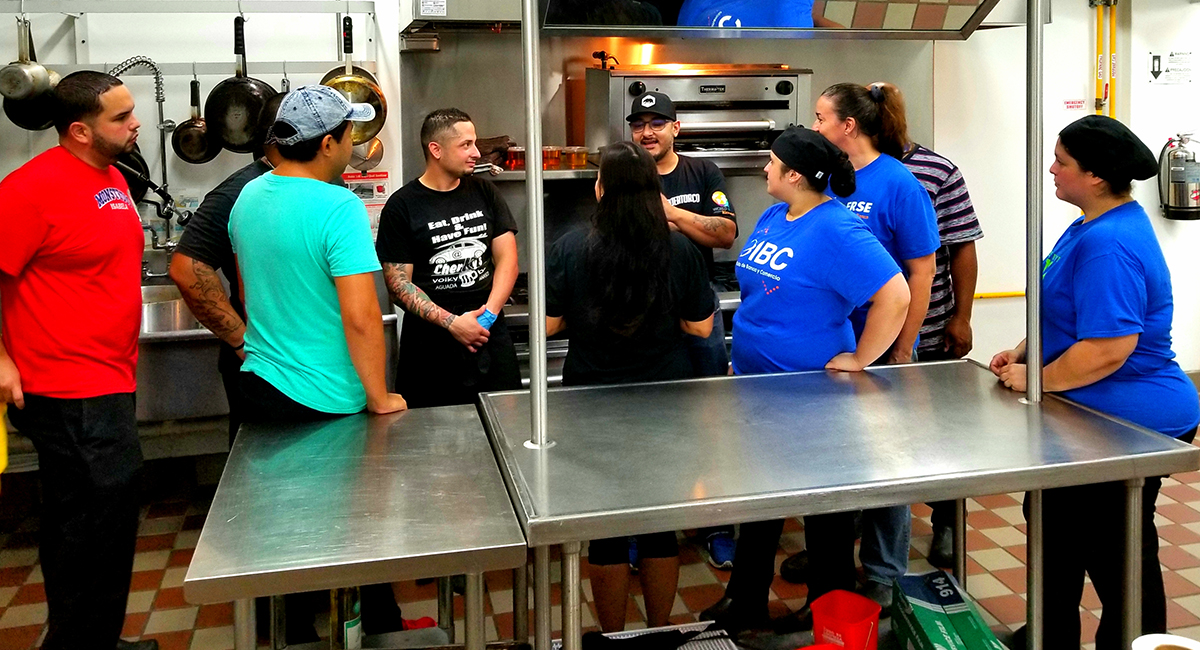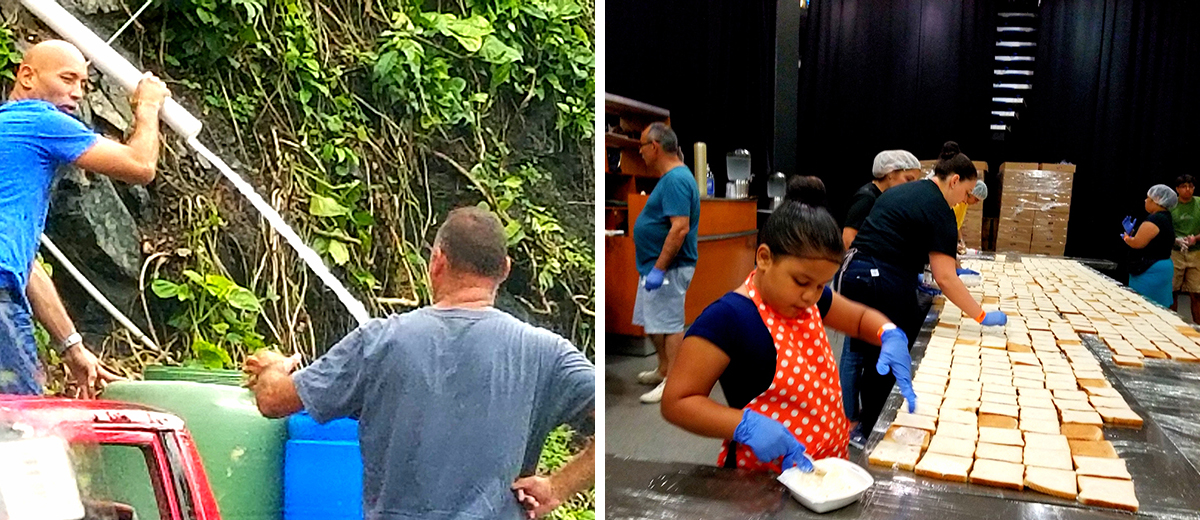When Hurricane Maria struck Puerto Rico in 2017, a number of individuals and private organizations stepped up to meet the island’s humanitarian needs in lieu of the dramatic lack of response from FEMA and the US federal government. One such individual was renown chef José Andrés, who was just named the James Beard Humanitarian of the Year. Andrés brought a team from around the country to assist. One member of that team was Ricardo Heredia, Executive Chef at José Andrés’ China Poblano in Las Vegas.
We recently got to ask Heredia, winner of the 2014 World Food Championships, what that experience was like.
What are the differences in approach when serving a world-class meal to being able to use your talent to help others?
The difference in approach is subtle, at the heart of it all is motivation, inspiration and problem-solving. These are the things we do in our kitchens every day. With limited resources, you must be creative on how you approach flavor development. We were not just cooking to feed people, José was clear about creating an emotion and feeding the soul.
How did the team go about stretching every dollar to cook meals for this many people?
You use everything! If we had pallets of canned vegetables, for instance, we would use the vegetables, but save the juice to put back in a stew or sauce. There were times I only had tomato paste to make a bolognese to serve 5,000. We make it happen, a touch of sugar some oregano a splash of vinegar and ground turkey. Peoples lives were at stake, failure was never an option and making delicious food is what we are good at.
“We were not just cooking to feed people,
José was clear about creating an emotion
and feeding the soul.”
Where were you preparing the food? Tell us about the kitchen setup.
The Coliseo in San Juan was the base of operations. In the beginning, we produced about 7-8K hot meals a day and 5K sandwiches a day. By the end of the first week we doubled production and by the third week, we tripled it surpassing 1.5 million meals by the time we left.
My main job was to travel across the Island to assess the operation and execute food at different IBC locations. IBC is a technical college that has culinary programs with functioning kitchens. The teams varied from professors to sometimes a crew of 1st-year pastry students that knew almost nothing about cooking, let alone for 10K meals. I helped teams in Fajardo, Los Colobos, Aguadilla, Mayaguez, Manati, Ponce, Orocovis, Barranquitas, Guayama, and Bayamon. I also went door to door delivering sandwiches and water to places that were offline – orphanages, elderly homes, housing projects, etc..
Each kitchen was unique with some better equipped than others. Some kitchens had no power and some without potable water. A few had cisterns on the roof to collect rainwater, which we would have to boil and store for cooking and for clean up.
Many of those affected were without power, what were you able to pull off with what we are assuming was a limited power source?
Sometimes we just cooked in the dark, if we had gas that’s all we needed. The pressure was enormous to get food out to people who really needed it, so you put your head down and push through. This was easily the hardest thing I have ever done physically, mentally and with no time to rest.
How did you get involved in this project?
This all happened organically, José touched down and just began cooking with local chefs. His vision was enormous and reached out for help. Five of us went out there from different restaurants here in Vegas, Miami, and D.C. We were like the fuckin’ seal team 6. We set up operations to make things more efficient and ensure that the quality was never overlooked.
What was the scene like when you arrived?
The devastation was surreal. The air was thick with sadness and despair. I was lucky enough to see most of the Island first hand and it was apocalyptic. All the trees stripped bare, houses completely blown away or sunk. No traffic lights, massive lines for ice, gas, banks. Roads swept away leaving some areas impassable.
My first day out I was told, “Ricardo, cook, do good and don’t die.”
“Yes, Chef!”
What companies or organizations stepped up to assist your team?
My biggest asset personally was from Homeland Security Investigation unit. I had escorts to most of the places I went to on the Island. My favorite guys were from NYC, these guys spend their days kicking down doors of Drug Dealers in the Bronx and now here they are delivering food and water with me strapped with glock 9’s and M-4 automatic assault rifles. Some spots were hairy, but that’s where I insisted to go, everyone needed help regardless if it was housing project or an orphanage full of little kids who just wanted to play for 15 minutes.
What is happening now in Puerto Rico and their efforts? Have stayed in touch since the first efforts?
As far as Puerto Rico goes I am still in contact with nearly everyone I worked with out there. World Central Kitchen is still providing meals for Puerto Rico There is the next phase, but what that exactly entails I am not at liberty to say, as it is a work in progress. Essentially we want to create systems that can put World Central Kitchen in disaster locations to feed the affected more rapidly than any other organization. The goal has always been to connect with local Chefs, government etc. to lend a hand and empower locals with the tools and resources that we already have and work to find.
José is a master at making anything he puts his mind to happen. The real thanks goes to the citizens of Puerto Rico who are undeniably some of the strongest, loving and united people I have ever had the pleasure of working with. We all can help by donating and following World Central Kitchen. Unfortunately, our Mother Earth is fed up with our blatant disregard for her health and resources, many more disasters will increase. Culinary Warriors strap up and be ready cause you never know when something like this can happen to our own hometowns. ♦





